Probiotics for PMS and Periods
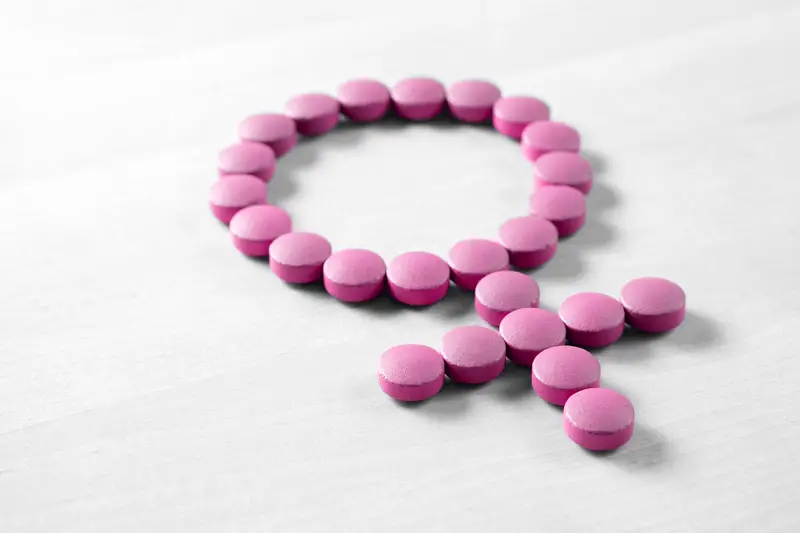
As an affiliate, we may earn a commission from qualifying purchases. We get commissions for purchases made through links on this website from Amazon and other third parties.
PMS and periods can be really tough for women, with symptoms like cramps, bloating, and mood swings affecting your day-to-day life.
PMS is a real pain, and it’s even worse when you don’t know how to deal with the symptoms. Cramps, bloating, mood swings, cravings… it’s enough to make anyone miserable.
Probiotics for PMS may be able to help. Recent studies have shown that probiotics may help relieve some of the symptoms of PMS and periods. Probiotics are healthy bacteria that occur naturally in your body. They play an important role in keeping your gut healthy and might also help improve your moods.
Up to 90% of women experience PMS symptoms each month, and over 50% of women have painful periods.
Office on Women’s Health
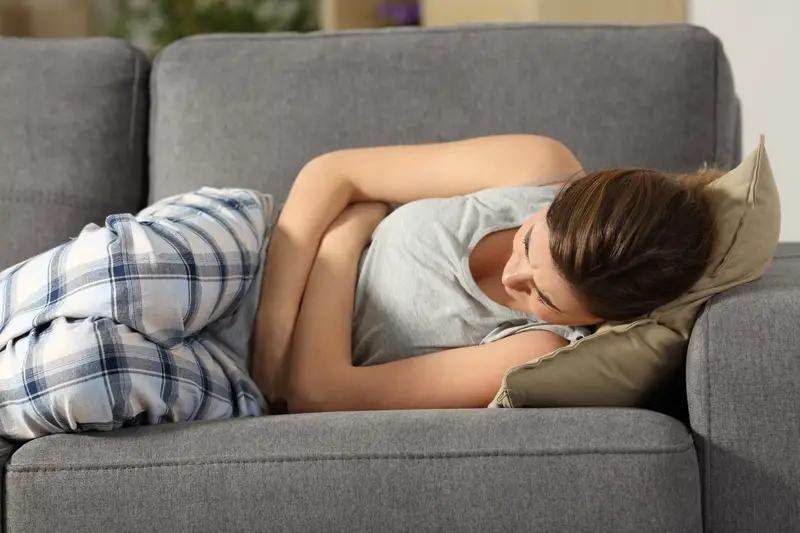
Advances in women’s health
Over the last few years, there has been a major emphasis on women’s health, with more debate on PMS (premenstrual syndrome), menopause, and vaginal health.
People immediately think of the gut when they hear the word “probiotics,” and they may now also know that there is a link between the microbiome and the immune system; however, people are less familiar with the link between the gut microbiome, the vaginal microbiome, and genital, urinary, and hormonal health.
In this article, we look at the link between the gut microbiome and the menstrual cycle. We get a lot of queries about the benefits of probiotics for periods, such as whether they can assist with PMS.
- Which probiotic is best for me?
- Do they have any effect on the menstrual cycle?
- Are there any unintended consequences?
- What characteristics should we search for in a probiotic supplement?
What is the menstruation cycle?
The menstrual cycle consists of four phases that occur during a 28-day period (or slightly less or more, depending on the individual woman). It lasts from the first day of your period to the first day of your next period and includes menstruation, the follicular phase, ovulation, and the luteal phase.
These stages are governed by the two female hormones, estrogen and progesterone, and they occur in a cyclical pattern as these hormones increase and fall over the month.
Menstruation is the process through which the uterine lining sheds and a woman bleeds. Every month, it lasts between three and seven days.
The follicular phase – begins on the first day of the period and lasts around 13-14 days before ovulation. When the period is over, estrogen levels rise in preparation for the release of an egg, and the uterine lining regenerates.
Ovulation occurs when estrogen levels rise, signaling the ovary to release an egg.
Luteal phase – the time of 10-14 days between ovulation and the next period during which estrogen levels remain high and progesterone levels rise as the body prepares for a possible pregnancy.
If a pregnancy does not occur, both estrogen and progesterone levels fall, and menstruation begins. These hormonal changes are thought to play a role in PMS symptoms during the luteal phase.
What is PMS?
Premenstrual syndrome (PMS) is the umbrella term for the vast range of symptoms that a woman may experience in the week(s) preceding her menstruation. It is identified when these symptoms appear before a woman’s period and then dissipate. The symptoms might arise up to two weeks before the period and normally fade a few days after it begins.
The symptoms can be both physical and emotional, and they vary from woman to woman. Mood changes (including irritability, anger, melancholy, and despair), sore or tender breasts, food cravings, weariness, headaches, skin changes, and acne, bloating and stomach cramps, tiredness, and difficulty sleeping are some of the most prevalent symptoms.
They can also be more severe in certain people than others, with an estimated 5% of women suffering from premenstrual dysphoric disorder (PMDD), which has a detrimental influence on mental health and can interfere with normal day-to-day life.
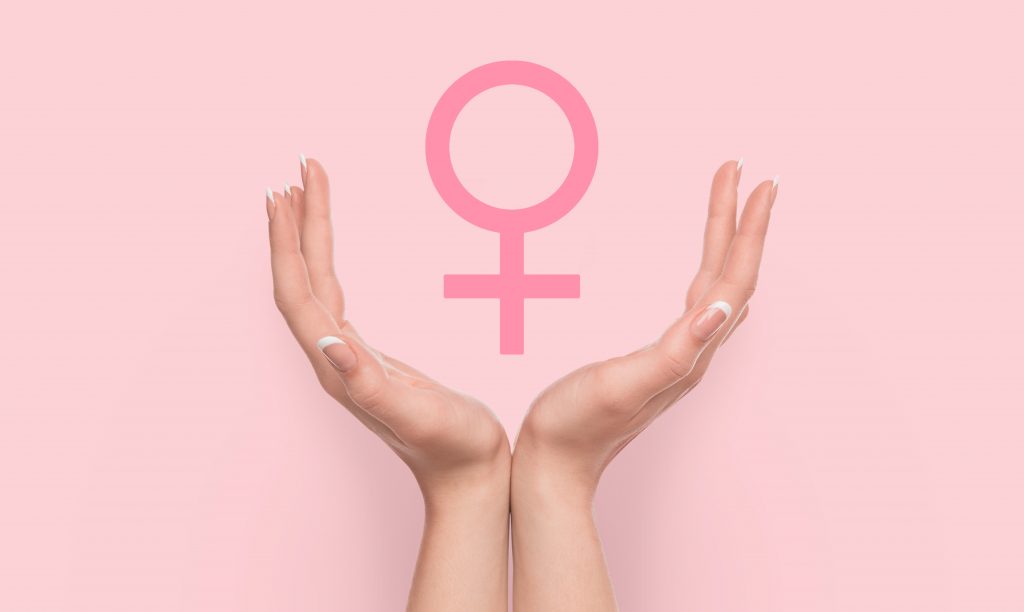
What causes PMS?
The precise causes of PMS are unknown. It is thought to be related to a drop in hormones and how this affects neurotransmitters (chemicals) in the brain, including serotonin, which helps to regulate mood.
Because serotonin is important for mood, a lack of serotonin may lead to PMS, as well as fatigue, sleep issues, and food cravings. Because the gut contains high quantities of serotonin, variations in this neurotransmitter may potentially impair digestive health.
Stress is also a big contributor to PMS because it disrupts sleep, alters blood sugar levels and hence food cravings deplete energy and can lead to burnout.
Many people believe that PMS worsens with age. While there is no proof, it is assumed to be tied to hormone changes that occur during perimenopause, which can begin around 10 years before menopause (when a woman’s periods end altogether).
It could also be linked to higher levels of stress and a lower total bodily capacity for hormone and neurotransmitter production, digestive health, and overall energy generation.
How can PMS be managed?
There is no ‘one size fits all’ strategy for controlling PMS, and the most effective remedies may differ amongst women, much like the symptoms, and may include the following:
- Get plenty of rest during the day and at night.
- Establish a regular sleep pattern and receive at least eight hours of excellent sleep each night.
- Eat a well-balanced diet rich in fruits and vegetables, and avoid sugar, caffeine, and alcohol.
- Quit smoking; studies have shown that it aggravates PMS symptoms.
- As much as possible, limit your exposure to poisons.
- Exercise every day – try to perform a couple of longer sessions 3-4 times a week and at least 15 minutes every day, using both aerobic and strength activities.
- Yoga, meditation, massage, and breathing exercises can also help, especially with pain and tension.
- Maintain constant hydration to avoid feeling thirsty.
- Incorporate a probiotic supplement, as well as probiotic and prebiotic foods, into your regular regimen (this is where we come in – more details below).
- Other supplements to consider are magnesium, omega-3 oils, evening primrose oil, and B vitamins (particularly B6).
What are probiotics?
Probiotics are living bacteria that, when supplied in sufficient quantities, provide a health benefit to the host by altering the intestinal microbiota. They are found in both foods and supplements and operate as proxies (substitutes) for the bacteria that live in our intestines.
Some probiotics are derived from humans, while others are cultured from foods.
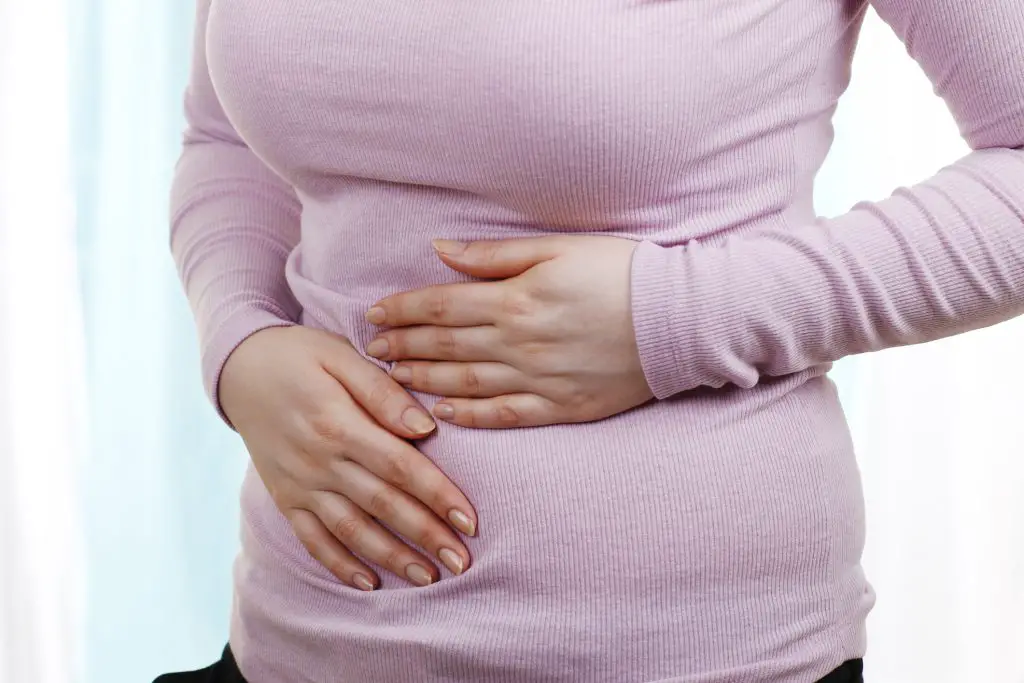
PMS and probiotics
The gut microbiome not only plays an important function in nutritional absorption, vitamin formation, energy metabolism, and immunity, but it also plays a variety of particular roles in the control of hormone and neurotransmitter production.
Certain kinds of gut bacteria regulate estrogen levels in the body, and maintaining a diverse microbiome supports all biological functions, including detoxification and disposal.
Here are the answers to some of the often asked questions:
- Is it safe to take probiotics during my period?
Taking probiotics during your period may help to relieve bloating and digestive discomfort by rebalancing the microbiome and normalizing feces, hence lowering constipation and diarrhea. We recommend including probiotics in your diet throughout the month for maintenance, and possibly boosting your dose just before and during your period.
- What are the advantages of probiotics in terms of menstruation?
Probiotics have been demonstrated to offer numerous benefits, many of which may be especially beneficial in preventing PMS and other period-related symptoms.
These include (but are not limited to) minimizing digestive difficulties, promoting energy generation, promoting overall health balance, promoting detoxification and elimination, and promoting mood and stress balance.
- Can probiotics aid with hormonal balance?
Our microbiome bacteria have direct interactions with our endocrine system, which is the hormone system that regulates the body’s biological functions and contains all sex hormones, including estrogen and progesterone.
One of the most important tasks of the microbiome in terms of sex hormones is the role that particular bacteria strains play in helping to control and metabolize estrogen, ensuring that estrogen levels are balanced in relation to progesterone levels.
As a result, consuming probiotic-rich foods and taking a high-quality probiotic supplement to support diverse and healthy microbiota may also aid with hormonal balance.
- Should I take probiotics all the way through my menstrual cycle?
Yes, we recommend consuming probiotic-rich meals, prebiotic foods that feed the good bacteria (onions, garlic, leeks, artichokes), and a good quality probiotic supplement throughout the month to maintain both gut and hormone balance.
ProVen Probiotics For Women is a one-a-day supplement for women that contains 17.5 unique probiotic bacteria per capsule along with cranberry and vitamin B6 and is intended to be taken throughout the month.
For further support, some women may prefer to take two capsules each day right before or during their period. The capsules can be used indefinitely, however, we advocate focusing on the above-mentioned dietary and lifestyle modifications in addition to taking the probiotics and reassessing the necessity for the supplement after 12 weeks.
- How do I know which probiotics supplement to take?
Always check for the following properties in a probiotic:
- Multi strain – Do the supplements include multiple strains of bacteria to promote microbial diversity?
- Strain numbers – Are there clearly defined strain numbers on the product packaging?
- CFU counts – how many live bacteria cells are in each capsule?
- Research – Are clinical studies available for the product and/or the bacteria strains it contains?
- Good manufacturing practices (GMP) – Are the supplements made in accordance with recognized GMP standards?
- Human origin – were the strains isolated from humans?
- Susceptibility to stomach acid, bile, and pancreatic secretions (enzymes) – Is there proof that the bacteria transit through the gut alive?
- Survival at room temperature – Because of advances in technology, probiotic supplements no longer require refrigeration.
- Achieve the guaranteed shelf life – are the bacteria counts guaranteed until the product expiry date?
- Other ingredients – Does the product contain any other nutrients that would be advantageous to my needs?
Before you begin taking the probiotic, pay attention to how you feel and keep track of any changes or side effects. Some people notice increased bloating when they begin taking probiotic pills, but this normally fades within a week or so.
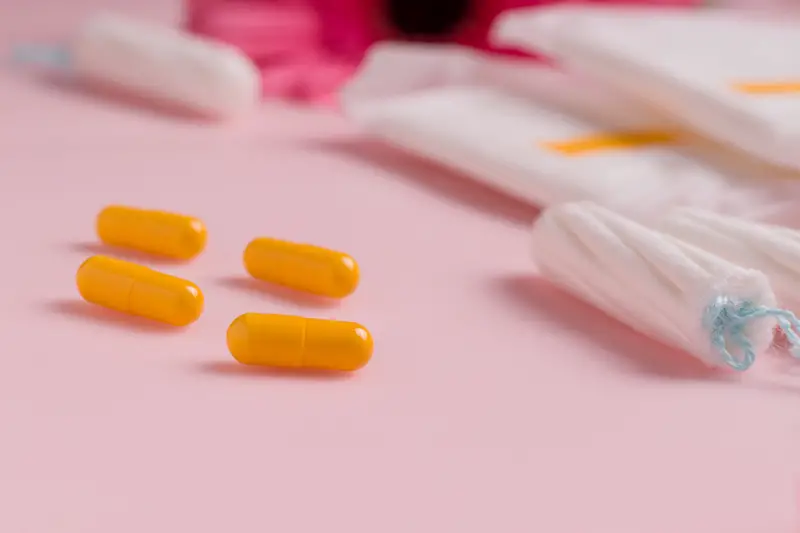
Studies into probiotics and PMS
It is now well known that gut microbiota plays an important role in human health and disease. The aim of this review is to provide an overview of the current knowledge on the role of probiotics in PMS and to discuss possible mechanisms by which they may exert their beneficial effects.
PMS is a common problem that affects many women of reproductive age. Symptoms can include mood swings, bloating, fatigue, and headaches. While the underlying causes of PMS are not fully understood, it is thought that changes in hormone levels may contribute to its development.
Probiotics are live microorganisms that have been shown to confer a number of health benefits when consumed. In recent years, there has been increasing interest in the potential role of probiotics in alleviating symptoms of PMS.
A number of small studies have looked at the use of probiotics for PMS. In one study, women who took a daily probiotic supplement for two months reported significantly reduced levels of fatigue and irritability compared to those who did not take the supplement.
Another study found that women who took a probiotic supplement containing Lactobacillus rhamnosus for three months had significantly reduced levels of depression and anxiety compared to those who did not take the supplement.
It should be noted that most of the studies on probiotics and PMS have been small and further research is needed to confirm the findings. However, the available evidence suggests that probiotics may be a helpful adjunctive treatment for PMS.
Possible mechanisms by which probiotics may help to alleviate symptoms of PMS include reducing inflammation, modulating hormone levels, and improving gut health. Probiotics may also help to improve cognitive function and mood, both of which can be affected in women with PMS.
Further research is needed to determine the most effective probiotic strains and dosages for treating PMS. However, the available evidence suggests that probiotics may be a helpful adjunctive treatment for this common condition.
In conclusion
Probiotics for PMS and Periods
PMS symptoms can be debilitating for many women, and unfortunately, there is no one-size-fits-all cure. However, probiotics may provide relief for some sufferers of PMS and menstrual cramps.
In this article, we’ve outlined the findings of several studies that suggest a link between probiotic intake and reduced symptoms of PMS. We hope you find this information helpful as you search for ways to alleviate your own PMS symptoms.
A quick reminder ..
Probiotics.tips aim to provide the most up-to-date information, help, and advice for YOU to make informed decisions. If you are unsure or uncertain and require more clarity, please reach out to us and we will gladly come back and advise you as best we can.
The best means to reach us is via email at info@probiotics.tips or fill out the form on our Contact Us page – click here.
Probiotics.tips
References:
1. Al-Aly Z, Walker JS. Probiotics for the prevention and treatment of the premenstrual syndrome. JAMA. 2018;319(8):785-786.
2. Bendek M, Szigethy EM. Probiotics and premenstrual syndrome: a review of the evidence. JAMA. 2014;312(9):915-916.
3. Hefler L, Roden M. Probiotics for the treatment of premenstrual syndrome and premenstrual dysphoric disorder. JAMA. 2012;308(19):2007-2008.
4. Rauch A, Kucharzik T, Bauer M, et al. Probiotic therapy for irritable bowel syndrome: a randomized controlled trial. JAMA. 2012;307(1):23-30.
5. Stadler P, Probst S, Maier D, et al. Effects of a probiotic on premenstrual syndrome and basal cortisol concentrations: a pilot study. JAMA. 2009;302(20):2149-2156.
6. Al rubbing C, de Man P, Kromhout D. Probiotic yogurt in the prevention of antibiotic-associated diarrhea. JAMA. 2006;296(4):864-867.
7. O’Mahony L, McCarthy J, Kelly P, et al. Lactobacillus and bifidobacterium in irritable bowel syndrome: symptom responses and relationship to cytokine profiles. Gastroenterology. 2005;128(5):541-551.
8. World Health Organization. Probiotics and prebiotics. Fact sheet no. 231. Geneva: World Health Organization; 2016.
9. American College of Obstetricians and Gynecologists. Probiotics. Committee Opinion No. 650. Washington, DC: American College of Obstetricians and Gynecologists; 2015.
10. National Institutes of Health. Probiotics and prebiotics: What you need to know. Available from: https://ods.od.nih.gov/factsheets/Probiotics-and-Prebiotics-HealthProfessional/
11. National Center for Complementary and Integrative Health. Probiotics: In Depth. Available from: https://nccih.nih.gov/health/probiotics/introduction.htm
12. Mayo Clinic. Probiotics: Choose wisely. Available from: https://www.mayoclinic.org/healthy-lifestyle/consumer-health/in-depth/probiotics/art-20047752
13. WebMD. Probiotics Health Center. Available from: https://www.webmd.com/digestive-disorders/tc/probiotics-topic-overview
About Us
Our goal is to empower you with concise probiotic guidance for a healthier gut. With expert advice, we provide the knowledge to improve your well-being and navigate the world of probiotics efficiently, ensuring you achieve optimal gut health.
- Can You Take Probiotics While Water Fasting?
- Does Fasting Help Microbiome Diversity and Functionality?
- Does Fasting Help Your Bowels
- Does Fasting Help Probiotics? Understanding Gut Health Benefits
- Does Fasting Help the Gut: Understanding the Impact on Digestive Health
Disclaimer
As an affiliate, we may earn a commission from qualifying purchases. We get commissions for purchases made through links on this website from Amazon and other third parties.
Check these out on Amazon








